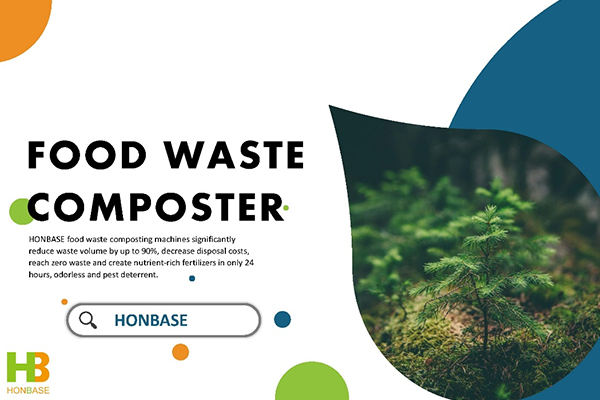Understanding Food Waste Composter Prices: What You Need to Know
As environmental sustainability becomes a more pressing global issue, many individuals and businesses are turning to composting as a solution for reducing food waste. A food waste composter is an eco-friendly device that helps recycle organic waste, such as fruit scraps, vegetable peels, and coffee grounds, into valuable compost. But when considering purchasing a food waste composter, one key factor that most people want to understand is its price.
Factors Affecting Food Waste Composter Prices
The price of a food waste composter can vary significantly depending on several factors. While there are budget-friendly options, high-end models with advanced features may come at a premium cost. Here’s a breakdown of the factors that influence the price:
1. Capacity
Larger composters with higher capacity typically cost more than smaller ones. Household models, which can handle waste from a single family, generally range from $100 to $300. However, commercial-grade composters designed for restaurants or businesses with a higher waste volume can cost anywhere from $1,000 to $10,000 depending on their size and capabilities.
2. Type of Composter
There are different types of food waste composters available, each with its own pricing range:
Countertop Composters: These compact units are perfect for small households. They range in price from $50 to $200 and are suitable for daily food scraps but may not handle large volumes of waste.
Aerobic Composters: These are designed for outdoor use and typically come with larger capacities. The price range for these units is around $150 to $1,000, depending on the size and design.
Electric Composters: These high-tech models can break down food waste more quickly and are equipped with features like automatic stirring and temperature control. They are more expensive, with prices typically between $300 and $1,500.
Tumbling Composters: These composters are easy to turn and mix the organic waste, helping to speed up the decomposition process. The price for tumbling composters typically falls between $100 and $500.
3. Material and Durability
The materials used to build the composter also play a role in its price. Models made from high-quality, durable materials like stainless steel or high-grade plastic tend to be more expensive but also offer greater longevity. For instance, stainless steel composters could cost up to $500, while those made from recycled plastic may be priced between $100 and $300.
4. Technology and Features
More advanced composters with features such as temperature control, automatic mixing, and odor-reducing systems come with a higher price tag. Models with smart technology that allow users to monitor and control the composting process through an app or a built-in sensor can cost upwards of $500. On the other hand, simpler, manually operated models will typically be more affordable.
5. Brand and Warranty
Renowned brands with a solid reputation for quality will likely offer products at a premium price. Additionally, models that come with longer warranties or customer support are typically priced higher due to their additional value.
Average Prices of Food Waste Composters
Low-End Models (Under $100): These are smaller countertop units, often manually operated, suitable for small kitchens. They are ideal for people who generate limited food waste and have minimal storage space.
Mid-Range Models ($100 to $500): Mid-range composters are suitable for families or small businesses. These often include tumbling composters or larger aerobic models that handle moderate amounts of organic waste.
High-End Models ($500 and Above): High-end composters are often electric or advanced tumblers designed to compost large volumes of food waste quickly. Commercial-grade composters, particularly those that use high-tech solutions, can be even more expensive, reaching several thousand dollars.
Is It Worth the Investment?
While the upfront cost of a food waste composter may seem significant, it is an investment that can pay off in the long run. By turning food waste into compost, you reduce the amount of waste sent to landfills, cut down on trash disposal costs, and contribute to healthier soil for gardens or farms. Additionally, some municipalities offer incentives or rebates for purchasing composting systems, which can help offset the cost.
Moreover, a composter helps businesses—such as restaurants and food markets—comply with sustainability practices and food waste reduction regulations, which can be particularly beneficial in eco-conscious markets like California, New York, or Europe, where food waste policies are increasingly being enforced.
Conclusion
Food waste composters come in a wide range of prices, from affordable countertop models to advanced electric and commercial-grade systems. The price depends on factors such as capacity, material quality, technology, and brand. While food waste composters might require an initial investment, they offer long-term environmental and financial benefits, especially for households and businesses committed to sustainability.
Whether you’re looking for a simple, budget-friendly solution for your home or a large-scale composter for your business, there are options available to suit every need and budget. Investing in a food waste composter not only helps in waste reduction but also supports the growing movement towards a more sustainable future.















